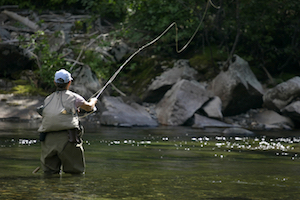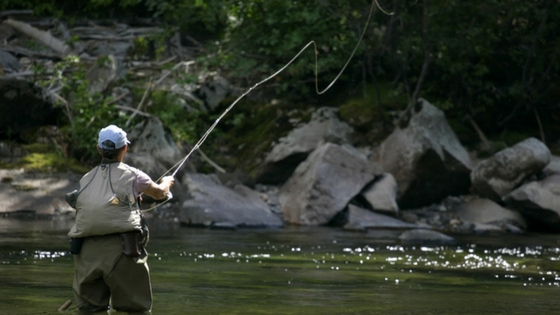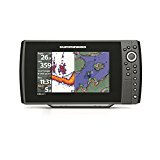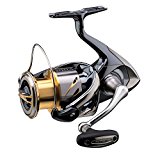Largemouth Bass River Fishing

The Largemouth bass is awesome. It’s energy and ability to fight in both lake and river watersheds is truly amazing. You’ll need a different skill set along with a different set of tackle when going after these beauties.
Largemouth Bass flies
All of the flies that we recommend here are successful for one reason. They replicate the prey that the largemouth is after.
- Try using popper, diver, leech, crayfish, pike, dragonfly and baitfish flies
- Largemouth prefer slow moving rivers and streams. They’ll avoid fast moving water
- Look for areas in the river where there’s weeds, brush and sunken trees
Knowing these 4 facts will increase your fishing success
1. They’re sensitive to smell and taste
Their large mouths and external lips contain extremely sensitive taste buds. Sensitive nostrils can smell traces, in parts per million, from a distance. This sensitivity works very well for them at night.
2. Water temperature is important
Water temperature plays an important part in the behavior of the Largemouth bass and finding your best fishing locations. As spring water temperatures are generally cooler, the bass will tend to look for still waters that warm faster.
3. Largemouth bass have poor eyesight
They don’t have eyelids and their iris is fixed in place making bright light a problem and something they avoid. They prefer cover. They have poor vision to anything above the surface. Sudden movements can scare away the fish. They can detect an angler standing tall in the boat.
4. They have acute sound sensitivity
Bass are highly sensitive to sound vibrations. Replicate the sounds of injured fish and your chances of catching more bass will improve. Sounds uncommon to their habitat will scare them away.
If you use sonic lures we suggest experimenting with the lure to find distress signals resembling those of the common forage. An alternative to the sonic lure is to trigger a feeding reaction by clipping a portion of the tail of a bait fish, prompting it to elicit distress signals.
Before the spring fish spawn, water temperatures are ideal for some of the best fishing of the year.
Bass spawning occurs throughout the spring.
- Be mindful of the areas closed to fishing. This is especially pertinent to smaller lakes, particularly lakes in northern United States and Canada, where the warm growing season is short and the limited breeding population is vulnerable to over-fishing.
Catch and Release
Fish caught during the spring should be carefully reeled in. To release, hold them by the lower lip and partially out of the water and gently remove the hooks.



